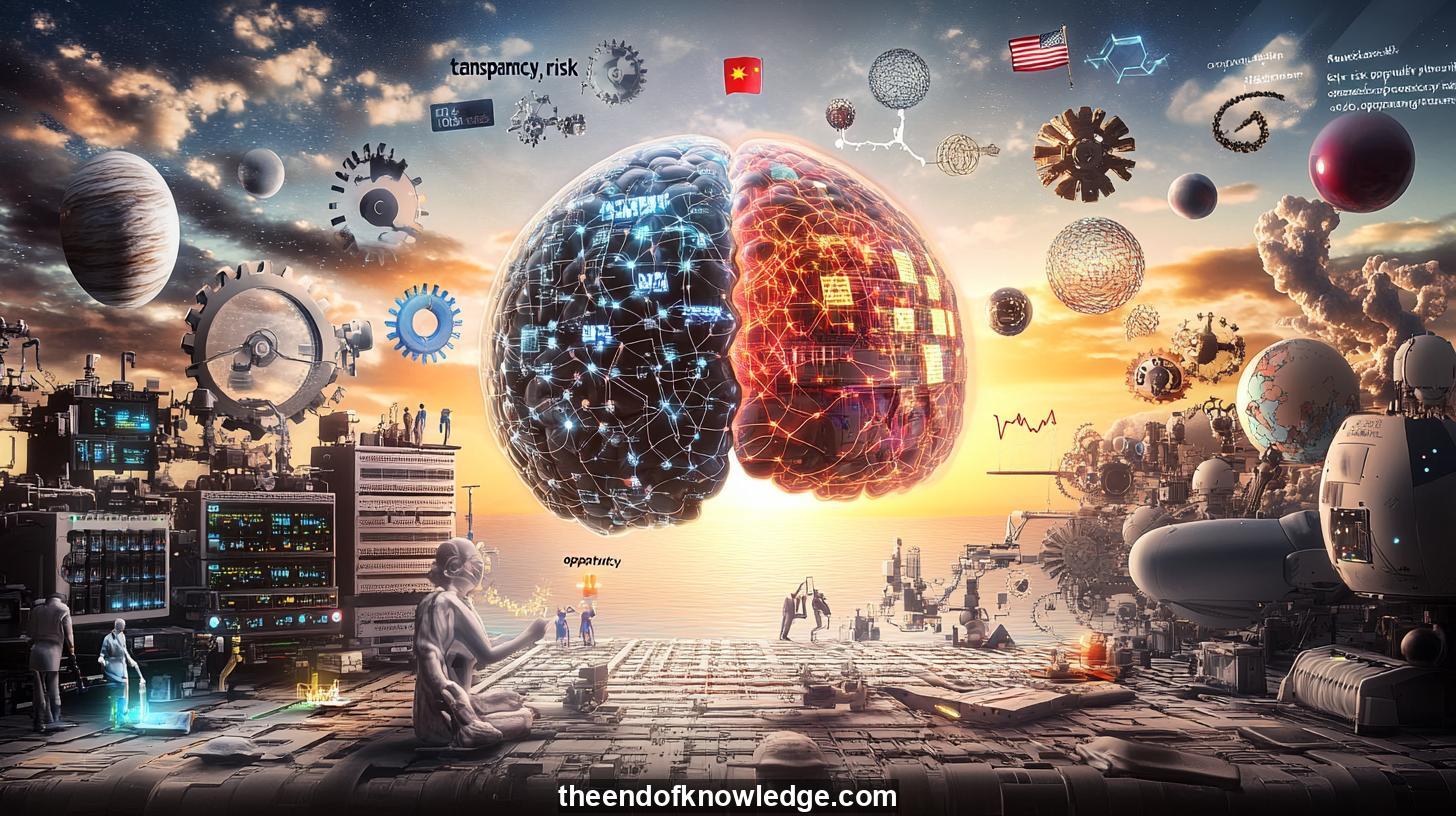 >
>
Concept Graph, Resume & KeyIdeas using DeepSeek R1 :
Resume:
The discussion between Luijait and John Garcia-Gramonte explores the intersection of artificial intelligence (AI) and cybersecurity, delving into the technical, ethical, and societal implications of these technologies. They begin by discussing the evolution of AI models, highlighting the transition from basic models to more advanced systems like GPT-4, which integrate capabilities such as reasoning, planning, and code generation. The conversation emphasizes the importance of hardware in AI development, particularly the role of GPUs and the challenges of scalability and cost-effectiveness.30 Key Ideas:
1.- The discussion explores the intersection of AI and cybersecurity, focusing on technical and ethical implications.
2.- Advanced AI models like GPT-4 demonstrate enhanced reasoning and code generation capabilities.
3.- Hardware plays a critical role in AI development, with GPUs enabling complex computations.
4.- Scalability and cost-effectiveness are significant challenges in AI hardware development.
5.- AI can enhance cybersecurity by identifying patterns and anomalies in data.
6.- Adversarial attacks pose a significant threat to AI systems, exploiting vulnerabilities in machine learning models.
7.- Prompt engineering manipulates AI models to elicit specific responses, raising ethical concerns.
8.- The ethical implications of AI include concerns about privacy, bias, and potential misuse.
9.- AI could augment human capabilities but also risks displacing jobs, necessitating policies like Universal Basic Income.
10.- The global race for AI dominance involves countries like the U.S. and China, with significant investments in research and development.
11.- Regulatory frameworks are essential to guide the development and deployment of AI technologies.
12.- Education and talent development in AI are crucial for fostering innovation and competitiveness.
13.- Inspiring young people to pursue AI careers is vital for the future of the field.
14.- The discussion reflects on the human condition and the need to preserve individuality in an AI-driven world.
15.- AI raises questions about the balance between technological advancement and human agency.
16.- The hosts emphasize the importance of a positive narrative to counter fears about AI.
17.- AI systems like ChatGPT are increasingly integrated into daily life, transforming workflows and productivity.
18.- The potential for AI to enhance decision-making in sectors like healthcare and education is significant.
19.- Ethical considerations must accompany the development of autonomous systems, particularly in military applications.
20.- The hosts advocate for responsible innovation to ensure AI benefits society as a whole.
21.- Collaboration between governments, industries, and experts is crucial for shaping AI policies.
22.- Public awareness and education about AI are essential to address misconceptions and fears.
23.- The discussion highlights the need for diverse perspectives in AI development to mitigate bias.
24.- Investment in AI infrastructure is critical for maintaining competitiveness in the global market.
25.- The hosts stress the importance of maintaining human values in the face of rapid technological change.
26.- AI systems must be designed with transparency and accountability to build public trust.
27.- The integration of AI into everyday devices, like smartphones, is transforming user experiences.
28.- Cybersecurity measures must evolve to address the unique challenges posed by AI.
29.- The hosts call for a balanced approach to AI development, considering both opportunities and risks.
30.- The future of AI hinges on the ability to harness its potential while addressing ethical and societal challenges.
Interviews by Plácido Doménech Espí & Guests - Knowledge Vault built byDavid Vivancos 2025